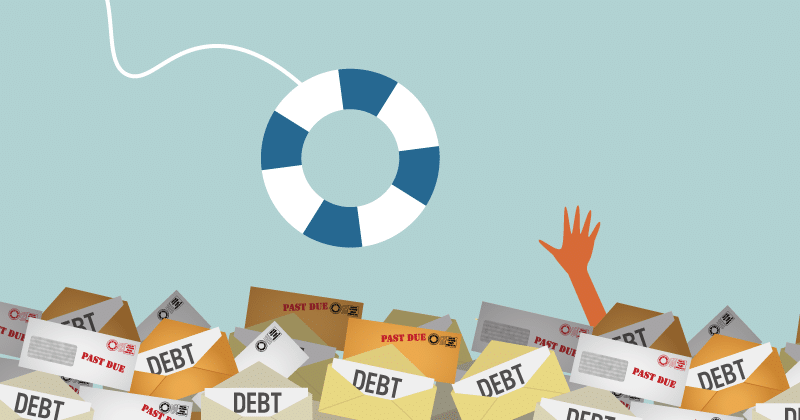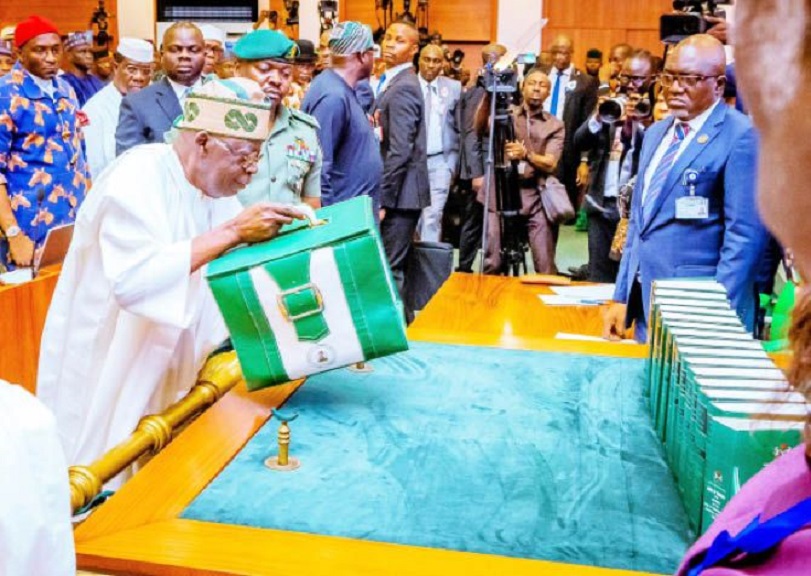Economy
NDIC Cautions Nigerians on Bitcoin Trading

By Modupe Gbadeyanka
Nigerians have been warned to be very careful how they embrace digital currencies, especially bitcoins, emphasising that they have not yet be certified okay by the necessary regulatory bodies in the country.
Managing Director of the Nigeria Deposit Insurance Corporation (NDIC), Mr Umaru Ibrahim, disclosed last week at the 12th Abuja International Trade Fair the digital currencies were not issued or managed by any sovereign authority in Nigeria.
He admitted that in other climes, they have been fully embraced, but warned that anyone in Nigeria involved in the trade do so at their own risk as such currencies were not insured by the NDIC.
“In view of the growing popularity which the phenomenon is gaining in Nigeria, it has become important to state that digital currencies are not authorised by the Central Bank of Nigeria, and they are not insured by NDIC,” he warned.
NDIC is an independent agency of the Federal Government of Nigeria. The objective of the deposit insurance system is to protect depositors and guarantee payment of insured funds in the event of failure of insured institutions.
Speaking further at the trade fair, the NDIC boss said that the currencies were issued by private developers and dominated in units and accounts not necessarily attached to a fiat currency.
Mr Ibrahim reiterated the corporation’s collaboration with the Central Bank of Nigeria (CBN) in monitoring the emerging digital and virtual currencies operations and studying its financial implications for the financial system, as well as designing policies that would protect the economy from any negative effects such invention could bring.
The digital currencies come in the form of Bitcoin, Ethereum, Ripple, Litecoin, and Etherium.
Recently, at the Crypto currency conference held in Lagos, Deputy Director/Head, Payments System Policy and Oversight at the CBN, Mr Musa Jimoh, has disclosed that the apex bank has commenced arrangement to introduce a digital currency in the country a move to key into the global adoption of Crypto currency initiative.
Mr Jimoh was quoted to have said at the event that CBN cannot stop the tide of waves generated by the blockchain technology and its derivatives.
“Currently, we have taken measures to create four departments in the institution that are looking forward to harmonise the white paper on Crypto currency,” he had said.
Crypto currency is a digital currency in which encryption techniques are used to regulate the generation of units of currency, and verify the transfer of funds, operating independently of a central bank.
Economy
Seplat Targets Oil Production of 120,000bpd in Six Months

By Adedapo Adesanya
Seplat Energy plans to increase its crude oil production by 140 per cent from about 50,000 barrels a day to roughly 120,000 barrels per day over the next six months, a top executive management disclosed this in a series of interviews with the Financial Times.
Recall that the Nigerian Upstream Petroleum Regulatory Commission (NUPRC) in October 2024 approved Seplat’s acquisition of Mobil Producing Nigeria Unlimited (MPNU) from ExxonMobil as part of a series of approvals.
The completion of the $1.28 billion Seplat-ExxonMobil deal has created Nigeria’s leading independent energy company, with the enlarged company having equity in 11 blocks (onshore and shallow water Nigeria); 48 producing oil and gas fields; 5 gas processing facilities; and 3 export terminals.
The acquisition of the entire issued share capital of MPNU adds the following assets to the Seplat Group: 40 per cent operated interest in OML 67, 68, 70 and 104; 40 per cent operated interest in the Qua Iboe export terminal and the Yoho FSO; 51 per cent operated interest in the Bonny River Terminal (‘BRT’) NGL recovery plant; 9.6 per cent participating interest in the Aneman-Kpono field; and approximately 1,000 staff and 500 contractors will transition to the Seplat Group.
“The assets have had very minimal investments until now,” the oil major’s chief financial officer, Mrs Eleanor Adaralegbe, told the newspaper.
“We expect that once we come in there will be an opportunity to grow that much further,” she added.
The company also plans to revive hundreds of Nigerian oil wells laying fallow, which according to Seplat’s chief executive, Mr Roger Brown, will be done in a collaborative effort with the state-owned Nigerian National Petroleum Company (NNPC) Limited as legally mandated in the country’s oil and gas industry.
“We have no concerns working with NNPC . . . There’s been a massive change with President Tinubu, realising that production is a great way of getting dollars into the country and supporting the currency,” Mr Brown said.
This was backed up by Seplat’s chief operating officer, Mr Samson Ezugworie, who noted that some of the assets will require time and investment so they can begin to produce again after being left idle.
“We have over 600 wells drilled and barely 200 of them are producing. We have significant idle wells that need to be rejuvenated and brought back into production within a short period of time.”
Economy
Nigeria’s External Debt Servicing Costs Jump 38% in Nine Months

By Adedapo Adesanya
Nigeria’s external debt servicing costs surged by 38 per cent in the first nine months of 2024, according to the Central Bank of Nigeria (CBN).
The surge translated to Nigeria’s apex bank spending a whopping $3.53 billion to service the country’s debts, indicating a $970 million jump compared to $2.56 billion during the same period in 2023.
This was contained in CBN’s International Payment Data published on its website.
The increase underscored the intensifying fiscal pressures facing Nigeria’s economy amid dwindling revenues, inflationary pressures, and currency depreciation.
A month-by-month analysis highlighted the scale of the challenge and showed that in January 2024, Nigeria spent $560.52 million on external debt servicing, marking a sharp increase from $112.35 million in January 2023.
February 2024 followed with $283.22 million, slightly below the $288.54 million recorded the previous year.
March 2024 showed a decline, with $276.17 million spent, compared to $400.47 million in March 2023, a 31 per cent drop.
In April 2024, debt servicing rose to $215.20 million, a 132 per cent increase, compared to $92.85 million in April 2023.
May 2024 saw the highest monthly expenditure of $854.37 million, a staggering 287 per cent jump from $221.05 million in May 2023.
By contrast, June 2024 recorded $50.82 million, slightly lower than the $54.36 million spent in June 2023.
The mid-year trend showed mixed movements as debt servicing fell to $542.50 million in July 2024, a 15 per cent decline from $641.69 million in July 2023.
August 2024 followed a similar trajectory, with $279.95 million spent compared to $309.96 million the previous year, a 10 per cent reduction.
However, September 2024 marked an increase, with $515.81 million spent, up 17 per cent from $439.06 million in September 2023.
Economy
Senate to Likely Pass N49.7trn 2025 Budget January 31

By Adedapo Adesanya
The Chairman of the Senate Committee on Appropriation, Mr Adeola Olamilekan, has confirmed January 31, 2025, as a provisional date for the passage of Nigeria’s 2025 budget as the committee prepares to begin budget defence today (Tuesday).
He made this disclosure on Monday during a meeting with the chairmen of relevant committees on the template for the 2025 Budget Defence Session to guide the budget process towards its eventual signing into law.
Mr Olamilekan further revealed that upon the resumption of plenary by January 14, 2025, the Senate would immediately commence a two-week break for the seamless continuation of the budget defence process.
He equally revealed a planned retreat on Thursday on the budget consideration which will involve ministries, departments and agencies, civil society organisations, and other stakeholders in the polity for further consultation and insight into the content of the budget proposal.
According to the timetable, from January 15 to 18, the committees are expected to submit reports of their documents, after which collation and tiding of documents by the Appropriation Committee.
Acknowledging the limited timeframe, Mr Olamilekan emphasised the need for lawmakers to intensify their efforts, urging his colleagues to forgo their holidays and begin immediate work on the proposed budget estimate, underscoring the importance of timely and efficient handling of the budget process within the stipulated timeframe.
In a related development, the House of Representatives is to commence the defence for the 2025 appropriation bill by Ministries Departments and Agencies on Tuesday.
The chairman House Committee on Appropriation, Mr Abubakar Bichi, revealed this on Monday after a meeting with chairmen of statutory committees at the House of Representatives.
President Bola Tinubu on December 18, 2024 presented the N49.7 trillion Budget Proposal for 2025 before a joint session of the National Assembly, with security and defence, infrastructure, health and education topping the allocations.
The President listed some of the highlights of the budget as defence and security – N4.91 trillion, infrastructure – N4.06 trillion, health – N2.4 trillion, education – N3.5 trillion, among others.
The budget will likely cross N50 trillion upon review by the National Assembly, making it the largest yet the country has ever had since self rule began in 1960.
-

 Feature/OPED5 years ago
Feature/OPED5 years agoDavos was Different this year
-
Travel/Tourism8 years ago
Lagos Seals Western Lodge Hotel In Ikorodu
-

 Showbiz2 years ago
Showbiz2 years agoEstranged Lover Releases Videos of Empress Njamah Bathing
-

 Banking7 years ago
Banking7 years agoSort Codes of GTBank Branches in Nigeria
-

 Economy2 years ago
Economy2 years agoSubsidy Removal: CNG at N130 Per Litre Cheaper Than Petrol—IPMAN
-

 Banking2 years ago
Banking2 years agoFirst Bank Announces Planned Downtime
-

 Sports2 years ago
Sports2 years agoHighest Paid Nigerian Footballer – How Much Do Nigerian Footballers Earn
-

 Technology4 years ago
Technology4 years agoHow To Link Your MTN, Airtel, Glo, 9mobile Lines to NIN
























